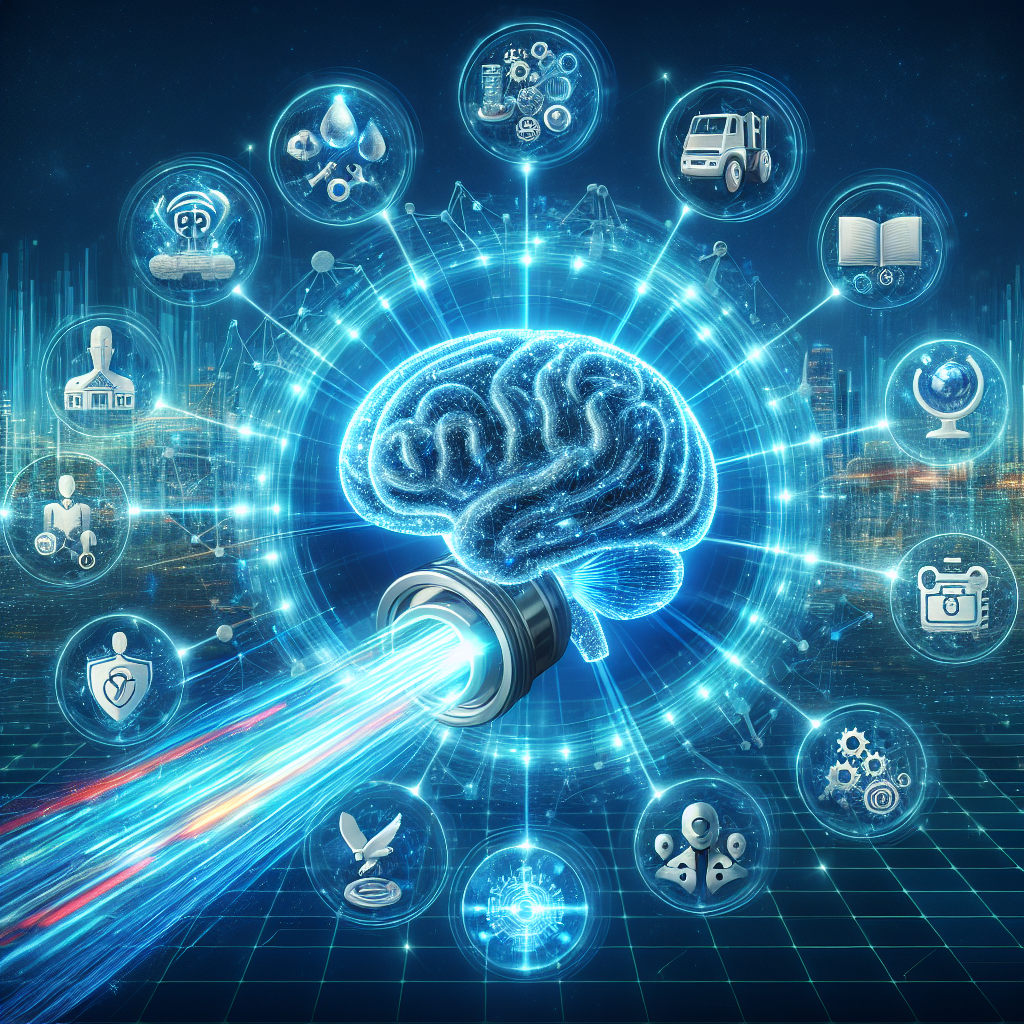The Future of AI: How AGI is Revolutionizing Industries
Artificial General Intelligence (AGI) is a term that refers to machines that possess the ability to understand, learn, and apply knowledge in a way that is indistinguishable from human intelligence. While current AI technologies are able to perform specific tasks with high levels of accuracy, AGI aims to create machines that can think and reason like humans across a wide range of domains.
With the rapid advancements in AI technology in recent years, the potential for AGI to revolutionize industries is becoming increasingly evident. From healthcare to finance, transportation to education, the possibilities for AGI to transform the way we live and work are vast. In this article, we will explore the future of AGI and how it is already beginning to reshape industries around the world.
Healthcare
One of the most promising applications of AGI is in the field of healthcare. With the ability to analyze vast amounts of medical data, AGI systems can help doctors make more accurate diagnoses, develop personalized treatment plans, and even predict potential health issues before they arise. This can lead to improved patient outcomes, reduced healthcare costs, and a more efficient healthcare system overall.
For example, researchers at the Mayo Clinic have developed an AGI system that can analyze medical images to detect early signs of cancer with a high degree of accuracy. This has the potential to revolutionize cancer screening and diagnosis, leading to earlier detection and more effective treatment options for patients.
Finance
In the financial industry, AGI has the potential to transform the way we manage money, make investments, and assess risk. AGI systems can analyze market trends, predict future developments, and even make investment decisions on behalf of investors. This can lead to more profitable investment strategies, reduced financial risks, and increased efficiency in financial markets.
For example, hedge funds are already using AGI systems to analyze market data and make trading decisions in real-time. This has allowed them to outperform traditional investment strategies and achieve higher returns for their clients.
Transportation
The transportation industry is also ripe for disruption by AGI technologies. With the development of autonomous vehicles, AGI systems can revolutionize the way we travel, reducing traffic congestion, improving road safety, and increasing transportation efficiency. AGI systems can analyze real-time traffic data, predict traffic patterns, and even coordinate with other vehicles to optimize travel routes.
For example, companies like Tesla and Google are already developing autonomous vehicles that use AGI systems to navigate roads, detect obstacles, and make split-second decisions to ensure the safety of passengers and pedestrians. This has the potential to revolutionize the way we commute, reducing the need for human drivers and making transportation more accessible and efficient for everyone.
Education
In the field of education, AGI has the potential to revolutionize the way we learn, teach, and assess student performance. AGI systems can personalize learning experiences for students, adapt to their individual needs, and provide real-time feedback to help them improve their skills. This can lead to more effective teaching methods, higher student engagement, and improved academic outcomes.
For example, companies like IBM are developing AGI systems that can analyze student performance data to identify areas where students are struggling and provide personalized learning resources to help them improve. This has the potential to revolutionize the way we educate students, making learning more accessible and effective for students of all ages and abilities.
FAQs
Q: What is the difference between AGI and other forms of AI?
A: AGI refers to machines that possess the ability to understand, learn, and apply knowledge in a way that is indistinguishable from human intelligence. Other forms of AI, such as narrow AI, are designed to perform specific tasks with high levels of accuracy but lack the ability to think and reason across a wide range of domains.
Q: How far away are we from achieving AGI?
A: While AGI is still in the early stages of development, rapid advancements in AI technology in recent years have brought us closer to achieving this goal. Some experts predict that we could see the first AGI systems within the next decade, while others believe it may take longer to develop the necessary technologies and algorithms.
Q: What are some potential risks and challenges associated with AGI?
A: While AGI has the potential to revolutionize industries and improve our lives in many ways, it also raises concerns about potential risks and challenges. These include issues related to data privacy, cybersecurity, job displacement, and ethical considerations surrounding the use of AI technologies in society.
In conclusion, the future of AGI is bright, with the potential to revolutionize industries across the globe. From healthcare to finance, transportation to education, AGI has the power to transform the way we live and work, leading to more efficient, productive, and innovative societies. As we continue to develop and refine AGI technologies, it is important to consider the potential risks and challenges associated with this powerful technology and work towards creating a future where AI benefits everyone.

